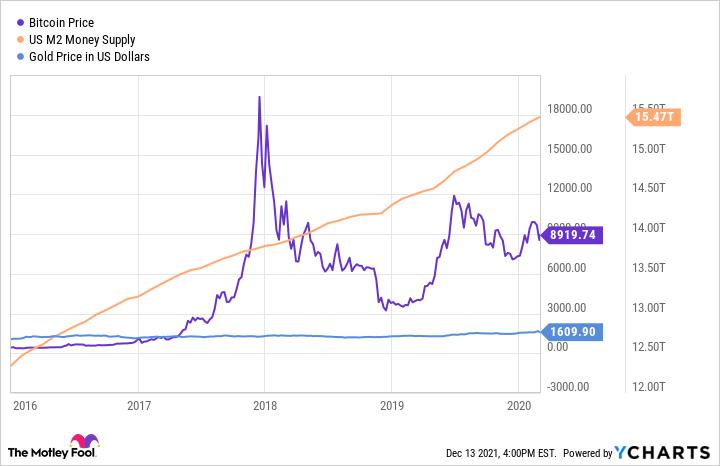Cryptocurrency has emerged as a quick way to earn money.
Cryptocurrency as an asset class is expected to have a close relationship with inflation, in the sense that when price pressures get hot, cryptos are supposed to get hotter. That can help hedge against inflation as it can protect wealth of investors who are looking for assets that can outgrow the increase of inflation.
The real returns from an asset class factor in the rise in inflation, and the actual yield needs to be positive for investors to grow their wealth.
But in reality, extreme volatility in cryptocurrency trades has made it a questionable asset at a time when inflation in India, and many countries, has risen sharply and triggered recession fears.
Cryptocurrency has emerged as a quick way to earn money. Its spectacular rise in 2021 made many investors turn towards crypto. But a fall in its value, which began towards the end of 2021 and has extended to this year, has given rise to fresh fears about its stability.
What is cryptocurrency?
It is a form of digital currency that uses cryptography to secure transactions. Many crypto coins circulate the market - such as Bitcoin, the largest by market capitalization - and Ether and Dogecoin.
All trades in cryptocurrency are recorded on the blockchain, which is freely available for everyone to see from any part of the world.
What is inflation?
Inflation is defined as a decrease in the purchasing power of money, which is reflected in an overall increase in the prices of goods and services in an economy.

According to International Monetary Fund (IMF), inflation is typically a broad measure which can provide a snapshot of the cost of living in a country. But it can also be more narrowly calculated for certain goods, such as food, or services, such as a haircut.
Inflation represents how much more expensive the relevant set of goods and/or services has become over a certain period (most commonly a year).
The connection between crypto and inflation
Cryptocurrency is growing fast as a payment method, with several big retailers beginning to accept bitcoin and other such currencies.
The stellar returns offered by these digital currencies saw investors flocking toward crypto instead of putting money in traditional and alternative investments like gold.
But big swings in the crypto market in the past few months have made these investors jittery. An asset's performance must be consistent if it has to outpace inflation.
Last week's bloodbath saw the value of bitcoin and others falling by a huge margin, making it difficult to rely on cryptocurrencies when inflationary pressure is high.
Experts also say that crypto's past is too brief to predict its future performance.
Warning of recession in the US
Former Goldman Sachs chief executive Lloyd Blankfein has warned corporate America and US consumers to be prepared for a recession. He was speaking to CBS News on Sunday.
Mr Blankfein said there is a "very, very high risk" that the US economy was heading towards a recession.
PromotedListen to the latest songs, only on JioSaavn.com"If I were running a big company, I would be very prepared for it. If I was a consumer, I'd be prepared for it. But it's not baked in the cake," Mr Blankfein said.
Bitcoin falls to a 16-month low
Bitcoin fell to its lowest in 16 months on Thursday, continuing to fall alongside risk assets such as tech stocks, and dragged down by the collapse of TerraUSD, the so-called stablecoin that lost its dollar peg this week.
The world's largest cryptocurrency dropped around 2% to as low as $28,379.26, its lowest since January 2021.









